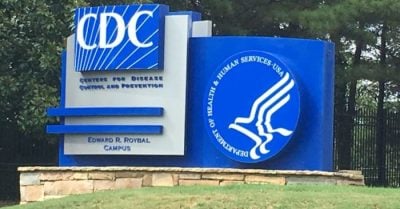Why America Doesn’t Trust the CDC. COVID-19 Booster Shots for 5-to-11-year-olds”. 24 Million American Children

To receive Global Research’s Daily Newsletter (selected articles), click here.
Visit and follow us on Instagram, Twitter and Facebook. Feel free to repost and share widely Global Research articles.
***
People don’t trust the CDC. Here’s one example illustrating why. Two weeks ago, with no outcomes data on COVID-19 booster shots for 5-to-11-year-olds, the Centers for Disease Control (CDC) vigorously recommended the booster for all 24 million American children in that age group. The CDC cited a small Pfizer study of 140 children that showed boosters elevated their antibody levels—an outcome known to be transitory.
When that study concluded, a Pfizer spokesperson said it did not determine the efficacy of the booster in the 5-to-11-year-olds. But that didn’t matter to the CDC. Seemingly hoping for a different answer, the agency put the matter before its own kangaroo court of curated experts, the Advisory Committee on Immunization Practices (ACIP).
I listened to the meeting, and couldn’t believe what I heard. At times, the committee members sounded like a group of marketing executives. Dr. Beth Bell of the University of Washington said “what we really need to do is to be as consistent and clear and simple as possible,” pointing out that the committee needed “a consistent recommendation which is simple.”
Other committee members similarly emphasized the importance of a universal booster message that applies to all age groups. Dr. David Kimberlin, editor of the American Academy of Pediatrics Red Book, speaking on his own behalf, said “Americans are yearning for, are crying out for a simpler way for looking at this pandemic.” He suggested that not recommending boosters for young children would create confusion that “could also bleed over to 12-to-17-year-olds, and even the adult population.”
The committee also debated how hard to push the booster recommendation, discussing whether the CDC should say that 5-to-11-year-olds “may” get a booster versus “should” get it.
Exhibiting classic medical paternalism, committee member Dr. Oliver Brooks of the Watts Healthcare Corporation said “I think may is confusing and may sow doubt,” adding “if we say should more people will get boosted versus may, then we may have more data that helps us really define where we’re going.” Dr. Brooks was essentially suggesting that boosting in this age group would be a clinical trial conducted without informed consent.
That doesn’t sound like following the science to me.
ACIP’s medical establishment representatives were on hand for the meeting. They included members of the trade association Pharmaceutical Research and Manufacturers of America and the American Medical Association (AMA). Dr. Sandra Fryhofer, an internist representing the AMA, summarized the tone of the many legacy stakeholders present with a passionate plea: “I urge the committee to support a ‘should’ recommendation for this third dose.”
The committee promptly approved the booster for young children by an 11-1 vote, with one obstetrician abstaining because he missed some of the discussion.
The one dissenting vote came from Dr. Keipp Talbot of Vanderbilt University, who courageously said vaccines, while extremely effective, “are not without their potential side effects.” She questioned the sustainability of vaccinating the population every six months. Many experts agree with her, but they don’t have a platform to speak. In fact, nearly 40 percent of rural parents say their pediatricians do not recommend the primary vaccine series for children. Those pediatricians were not represented on the committee.
The CDC has a history of appointing like-minded loyalists to its committees. Last year, it dismissed a member of its vaccine safety group, Harvard professor of medicine Dr. Martin Kuldorff, for dissenting from its decision to pause the J&J vaccine. A year ago, Joe Biden appointed party devotees to his COVID-19 task force. Reaching a consensus is easier that way.
The Food and Drug Administration’s (FDA) vaccine advisory committee, comprised of the nation’s top vaccine experts, have made similar public statements as Dr. Talbot. But the committee was not involved in approving boosters for children. The FDA actually bypassed it days prior—the third time over the last year that the FDA made sweeping and controversial authorizations without convening its vaccine experts.
Most remarkably, it didn’t seem to matter to the CDC that 75.2 percent of children under age 11 already have natural immunity, according to a CDC study that concluded in February. Natural immunity is certainly much more prevalent today, given the ubiquity of the Omicron variant since February. CDC data from New York and California demonstrated that natural immunity was 2.8 times more effective in preventing hospitalization and 3.3 to 4.7 times more effective in preventing COVID infection compared to vaccination during the Delta wave. These findings are consistent with dozens of other clinical studies. Yet natural immunity has consistently and inexplicably been dismissed by the medical establishment.
When the CDC voted, director Dr. Rochelle Walensky declared that the booster dose is safe for kids ages 5-11. Yes, the complication rate is very low, and we think it’s safe, but how can anyone know from only a short-term follow-up of 140 children? The more appropriate assessment is that we believe it’s safe but we can’t be sure yet from the data we have so far. Unfortunately, the strength of the CDC recommendation to boost all children 5 and up will trigger some schools and summer camps to blindly mandate a third dose for healthy children who don’t need it.
Instead of pushing boosters on healthy children who are already immune, public health officials should focus on recommending the primary COVID vaccine series to high-risk children who don’t have any immunity.
Public health officials are expected to recommend COVID vaccines for children under 5 as soon as June 21st, despite the fact that the vast majority of children already have natural immunity. In a recent Kaiser survey, only 18 percent of parents said they were eager to vaccinate their child in that age group.
If the CDC is curious as to why people aren’t listening to its recommendations, it should consider how it bypassed experts to put the matter before a Kangaroo court of like-minded loyalists. The Biden administration should insist that we return to the standard process of putting all major vaccine decisions before a vote of the FDA’s leading vaccine experts.
The Biden administration promised to listen to the scientists. But the truth is, it only seems to listen to the ones who say what it wants to hear.
*
Note to readers: Please click the share buttons above or below. Follow us on Instagram, Twitter and Facebook. Feel free to repost and share widely Global Research articles.
Marty Makary M.D., M.P.H. (@MartyMakary) is a professor at the Johns Hopkins School of Medicine and author of The New York Times Bestselling Book, The Price We Pay: What Broke American Health Care and How To Fix It.
Featured image: The Center for Disease Control and Prevention in Atlanta. (Raed Mansour/Flickr)


